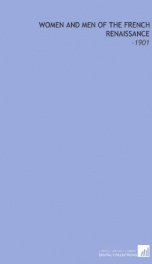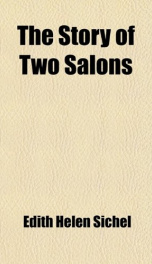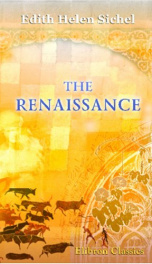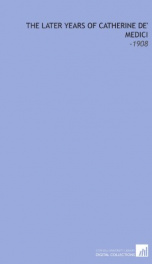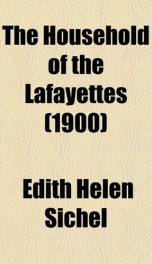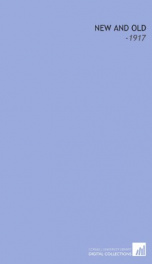the life and letters of alfred ainger
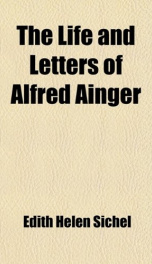
Purchase of this book includes free trial access to www.million-books.com where you can read more than a million books for free. This is an OCR edition with typos. Excerpt from book: CHAPTER III THE LION ' A New magazine is about to be started in Cambridge. It eman- ates from Trinity, but is open to contributions from the whole University. Horace Smith and myself have been asked to contri- bute, and we intend doing so.' So wrote Ainger in 1858, and shortly after his letter there appeared the first number of the Lion. The Eagle, which still survives as the organ of St. John's College, had hitherto been the most prominent magazine in the University. But the Lion had more ambitious aims, and the introductory statement of its purposes took a high flight. It was to fill a need as yet unsatisfied in the University world; it was to be earnest in tone, witty in expression, and Catholic in the topics that it treated; no mere college affair, but open to contributions from all the undergraduates of Cambridge. Among these, as we saw, were some who, as enthusiasts for Tennyson and followers of Maurice and Kingsley, wished to see religious earnestness united to broad sympathies and to poetic culture although culture for culture's sake was by no means what they approved of. There were undergraduates of that time who felt no such limitations, but they were to be found in a very different circle, the set of brilliant free-lances who 'proved all things' and held fast that which was intellectual. They centred round George Trevelyan and Henry Sidgwick, and were not at all in touch with the thought and aims of the Mauricians, whom they looked upon as too solemn and too ' Philistine.' The most active spirit of the first of these two groups was, perhaps, H. R. Haweis of Trinity. He it was who originated the Lion, for which paper he also wrote; while Alfred Aiuger, IHorace Smith, and A. W. Ward were the chief among his fellow-contributors. The first number, which had t...
Info about the book
Author:
Series:
Unknown
ISBN:
1175436747
Rating:
3.5/5 (1)Your rating:
0/5
Languge:
English
Users who have this book
Users who want this book
What readers are saying
What do you think? Write your own comment on this book!
write a commentif you like the life and letters of alfred ainger try:
Do you want to read a book that interests you? It’s EASY!
Create an account and send a request for reading to other users on the Webpage of the book!

